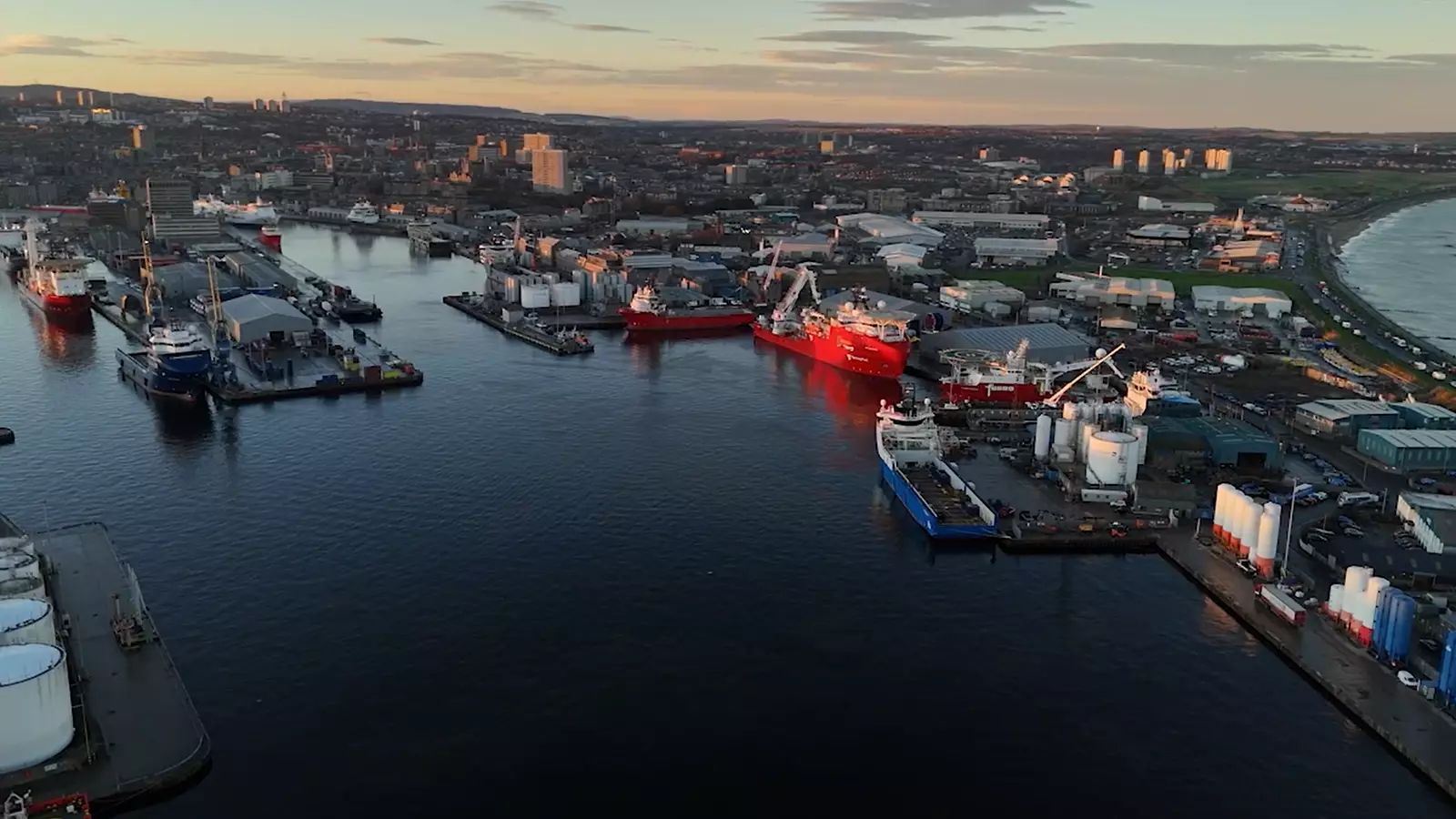In a bid to transition towards a greener economy, the Labour government has laid out ambitious plans for the establishment of GB Energy, a state-owned energy company expected to operate from Aberdeen. Sir Keir Starmer’s proclamation of creating 1,000 jobs in the area has sparked a wave of optimism among voters. However, recent comments made by Juergen Maier, the appointed chairman of GB Energy, suggest that the realization of this promise may be decades away. This contradiction raises critical questions about political accountability and the feasibility of such aspirational promises in the context of an urgent energy crisis.
One might argue that the timing of these pledges coincides with a critical juncture for the North Sea oil and gas industry, which has placed thousands of jobs on the line. The Simon of GB Energy’s approach—emphasizing a gradual implementation over a span of 20 years—leaves workers and stakeholders in an uncertain position, rife with skepticism about whether these ambitious plans can translate into tangible results.
The current state of employment in Aberdeen, where around 50,000 individuals are tied to the oil and gas sector, begs an immediate response from GB Energy. Local businesses and the Aberdeen and Grampian Chamber of Commerce have voiced their concerns about the pace of this transition. Chief Executive Russell Borthwick’s insistence on needing to demonstrate “quick wins” reflects a broader anxiety present in the local community about job security as the energy sector undergoes significant changes.
Many within the local economy are understandably “nervous,” feeling as though promises are being cast without sufficient groundwork. If GB Energy fails to deliver substantial employment opportunities in the short term, the implications could be dire for individuals and businesses reliant on oil and gas.
Juergen Maier’s statements about the foundational phase of GB Energy present a stark contrast to the initial promises made by the Labour party. While claiming to focus on long-term growth, the current output of 200 to 300 jobs over the next five years starkly juxtaposes the commitment of creating 1,000 jobs in the long run. The acknowledgment that these developments might take upwards of 20 years to fully materialize raises alarms about the potential disconnect between grand promises and practical execution.
Moreover, the term “long term,” as defined by Maier, appears to lack clarity when addressing immediate employment needs. Given the imminent threat of job losses in the oil and gas sector, a commitment to a decades-spanning initiative falls short of addressing current existential challenges faced by workers.
As unions like Unite and Prospect weigh in on the potential risks associated with GB Energy, their apprehensions underscore the political implications of over-promising. Derek Thomson from Unite emphasized the crucial need for timely intervention, warning that failure to accelerate job creation could lead to widespread despair in the Northeast. For many, the balance between optimism and skepticism teeters precariously as potential jobs hang in the balance.
The debate surrounding GB Energy is less about the feasibility of transitioning towards renewable energy and more about the associated risks of empty promises. Richard Hardy from Prospect encapsulates this concern by calling for a concrete plan rather than vague declarations. If GB Energy’s actions fall short of its promises, it risks eroding public trust, not only in the initiative itself but also in the broader political landscape.
The establishment of GB Energy marks a crucial step towards the UK’s commitment to renewable energy; however, the concerns surrounding its operational viability and the timeline for job creation cannot be overlooked. As both political figures and stakeholders engage in a high-stakes balancing act between ambitious plans and community sentiment, it is imperative that GB Energy articulates a transparent roadmap forward, one that clearly delineates immediate actions alongside long-term goals.
The juxtaposition of lofty promises against current realities serves as a sobering reminder of the complexities that lie ahead in creating a sustainable energy future. Balancing aspirations with realistic outcomes is not solely a matter of operability; it’s about fostering trust and ensuring that the voices of those affected are heard and addressed effectively. Embracing this transparency could mean the difference between successful implementation or yet another case of political overreach that leaves communities in limbo.

